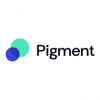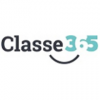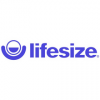 MatchMySound is the technology behind one of the most advanced platforms for music education in America. With industry-leading guided practice tools, their mission is to “change the way people learn, play and enjoy performing music.”
MatchMySound is the technology behind one of the most advanced platforms for music education in America. With industry-leading guided practice tools, their mission is to “change the way people learn, play and enjoy performing music.”

DS: Before I got involved in the project, Kristo Käo, a well-known Estonian guitarist, and teacher, put together a guitar method book and offered students an individualized evaluation. All they needed to do was send him an MP3, and he promised to listen and respond. The book was a great success, and he was flooded with MP3 submissions.
A doctoral classmate, Margus Niitsoo, purchased the book and sent in his MP3. While he was waiting for a response, he realized that Kristo was doing the entire process of listening and evaluating, manually. He took it upon himself to develop an algorithm that would automate that process.
The two of them worked together, as Music Education OÜ, and sent out 600 emails to prospective investors and partners, including music schools, colleges, and music publishers. I was the only one who responded because I saw immediately the potential. We formed a partnership in 2014, and five years later, all the major music publishers who had ignored the initial emails are now our clients. We have contracts with musicians and educators, including Fender Play, and many others.
DS: When I was 34, I started my first education business, the National Guitar Workshop. Over the years more than 40,000 students enrolled in our programs. They ranged in age from ages of 14 and 80. From there, a publishing company was created, along with a day camp for younger students. That culminated in an additional 50,000 students creating their own music, and performing it on stage.
In 2005, I got investors to launch WorkshopLive, an online version of the original guitar workshop concept. But, we were a little early, I think. First of all, high-speed internet wasn’t ubiquitous yet, and it took forever to upload videos and to download. A few weeks after we launched, a little platform named YouTube started. Since they were offering content for free, and we weren’t, things didn’t quite go as I had planned. It was the first time I experienced a business start-up failure, and it was even more difficult because I had investors who were not happy at all.
But, you have to brush yourself off, and I carried on. All of that led up to initially working with Kristo and Margus, and eventually buying them out. Today, Kristo is working as our head of product development, so it feels like we’ve come full-circle, together. When I look at where I started, with the National Guitar Workshop, to now, it all fits together perfectly.
DS: After we formed the partnership in 2014, it took a while to get our first contract. In 2015, to be exact. We slowly grew, but came up against some resistance from publishers, especially, and even private music teachers. The publishers feared that we were going to cannibalize their print products and the teachers feared that online assessment could eliminate their job. But, we never claim to be able to evaluate the musicality of a performance. We only measure and rhythm and tempo and if the student is playing the correct note. Only a teacher can evaluate musicality and artistry. It took a while to convince them that the platform is merely a tool for instruction, to help the student stay in practice until the next weekly lesson. The publishers were the most resistant. Some of our deals took five years to come to fruition.
DS: Our initial success with music educators was the capability to create teacher-generated exercises that they could use with their students. Primarily, initially, in a traditional school setting of 4th-6th graders. For instance, fully 50% of the content used in the platform was teachers’ original content versus system-provided content.
We also had, and why I was drawn to the program in the first place, the ability to evaluate more than one note. In the past, that was the major limitation of automated music evaluation. So you could only evaluate single-note instruments like trumpets or saxophones. That left out the guitar and piano, two of the most popular instruments in the world. The technology can recognize and evaluate up to seven notes at a time, and that was ground-breaking.
In 2020, when COVID hit, we were the perfect option for music education teachers and programs, when suddenly in-person lessons were impossible. Using the technology, music education could continue in a way that enhanced what had taken place in more traditional settings. Even as students and teachers return to that setting, they find that MatchMySound is almost indispensable.
DS: I think the biggest challenge for us is the remote environment that we work within. We started with just a few individuals, and now we have thirty-four on staff. 18 in Estonia, 14 in the US, and 2 in the United Kingdom. We were all remote, even before COVID, but we would meet every few months.
The main challenge with the remote setting is creating a positive and productive culture across time zones and many miles. We’ve managed that by our hiring practices, which dictate that any new hire is someone known by an employee of the company. And I’ve given autonomy to the managers to hire their own team. That was difficult to do, but I have to trust them to hire people they know and trust, and who they also know will fit into the company culture.
DS: Well, first of all, if you can be happy working for someone else…work for someone else! (laughs)
But, primarily, it’s critical to manage your own expectations. Whatever you do won’t be as good as you expect, but it also won’t be as bad or as difficult as you expect.
At the same time, you need to manage the expectations of your investors. You know, they have literally invested in you, and they will make demands on you, and have expectations of you as well. When getting into a relationship with an investor, you have to treat it like a marriage - it’s a serious relationship. Don’t jump in with just anyone, and don’t take the first offer for an investment. The chances that that first investor is the right fit - well, it’s very slim.
Finally, don’t try to raise money when you need it. When you raise money because you don’t need it, you maintain the power in the situation. Desperation breeds bad deals, like giving up too much equity.
DS: We’re constantly working on improving and expanding the platform. The next thing we have in the works is the ability for the algorithm to recognize the dynamics and articulation. We are also working on an algorithm that can be used by non-pitched instruments, such as drums and percussion.






















